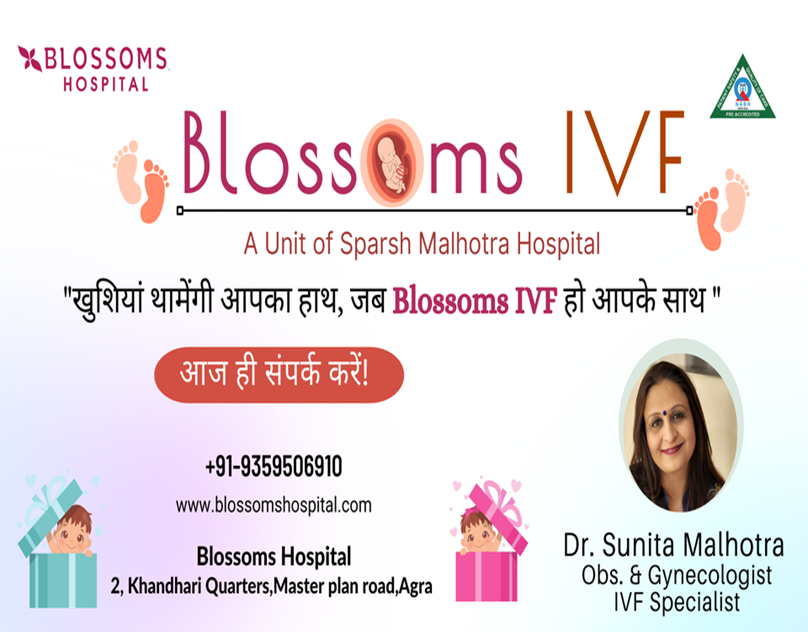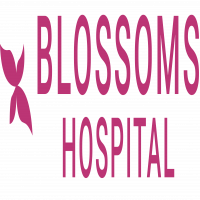Overview of the IVF Treatment : Complete Information About IVF

Strong 8k brings an ultra-HD IPTV experience to your living room and your pocket.
In Vitro Fertilization (IVF) is an advanced assisted reproductive technology (ART) that helps couples struggling with infertility to conceive. IVF involves fertilizing an egg with sperm outside the body in a laboratory, and the resulting embryo is then transferred into the uterus for implantation.
How IVF Helps People
IVF is beneficial for individuals and couples facing various infertility issues, including:
Blocked or damaged fallopian tubes
Male infertility (low sperm count or motility issues)
Unexplained infertility
Endometriosis-related infertility
Ovulation disorders (e.g., PCOS)
Genetic disorders
Age-related infertility
By bypassing many natural barriers to conception, IVF significantly increases the chances of pregnancy.
Step-by-Step Process of IVF Treatment
IVF treatment typically follows these steps:
1. Initial Consultation & Fertility Evaluation
A fertility specialist evaluates the couple’s medical history, conducts tests, and determines if IVF is the best option.
2. Ovarian Stimulation
The woman takes hormone injections for 10-14 days to stimulate the ovaries to produce multiple eggs.
Regular ultrasounds and blood tests monitor follicle growth.
3. Egg Retrieval (Oocyte Retrieval)
When the follicles are mature, a minor surgical procedure called follicular aspiration is performed under mild sedation.
The eggs are collected using a fine needle guided by ultrasound.
4. Sperm Collection & Preparation
The male partner provides a sperm sample, or donor sperm is used.
The sperm is washed and processed to select the healthiest ones for fertilization.
5. Fertilization (ICSI or Conventional IVF)
The eggs and sperm are combined in a laboratory dish to allow natural fertilization, or Intracytoplasmic Sperm Injection (ICSI) is used (where a single sperm is directly injected into the egg).
6. Embryo Development & Monitoring
The fertilized eggs (embryos) are cultured in the lab for 3-5 days, allowing specialists to monitor their growth.
7. Embryo Transfer
The healthiest embryo is selected and transferred into the woman’s uterus using a thin catheter.
This is a painless procedure that does not require anesthesia.
8. Luteal Phase & Pregnancy Test
The woman takes progesterone supplements to support implantation.
After 10-14 days, a blood test confirms whether the embryo has successfully implanted, resulting in pregnancy.
IVF Timeline
The full IVF cycle takes about 4 to 6 weeks and includes:
Pre-cycle preparations (1-2 weeks) – Tests and medications.
Ovarian stimulation (10-14 days) – Hormone injections.
Egg retrieval & fertilization (1-2 days) – Lab procedures.
Embryo culture (3-5 days) – Development of embryos.
Embryo transfer (Day 3 or 5 after retrieval) – Placing the embryo into the uterus.
Pregnancy test (10-14 days after transfer).
Success Rates of IVF
The success of IVF depends on factors such as age, egg quality, sperm health, and underlying medical conditions.
Women under 35 have a 40-50% success rate per cycle, while success rates decline with age.
Cost of IVF Treatment in India
The cost of IVF varies based on the hospital, location, and medical needs. In India, the average cost of one IVF cycle ranges from ₹1,50,000 to ₹2,50,000. Additional costs may include:
ICSI (₹20,000 - ₹50,000) (if required)
Embryo freezing (₹30,000 - ₹50,000 per year)
Donor eggs/sperm (₹30,000 - ₹80,000 extra)
Advanced genetic testing (PGD/PGS - ₹50,000 - ₹1,00,000)
Multiple cycles may be needed if pregnancy does not occur in the first attempt, increasing the overall cost.
Blossoms Hospital: The Top IVF Centre
Blossoms Hospital in Agra has earned a reputation as a Best IVF Centre in Agra due to its:
1. High IVF Success Rates
Advanced techniques and personalized treatment protocols ensure high success rates, especially for complex infertility cases.
2. Experienced Fertility Specialists
A team of expert embryologists, gynecologists, and reproductive endocrinologists provides world-class treatment.
3. State-of-the-Art Technology
Blossoms Hospital uses cutting-edge equipment for ICSI, embryo freezing, laser-assisted hatching, and genetic screening (PGT-A/PGT-M).
4. Affordable IVF Packages
The hospital offers competitive pricing and EMI options, making IVF accessible to more couples.
5. Patient-Centric Approach
The hospital provides compassionate care, emotional support, and counseling throughout the journey.
6. Positive Patient Feedback
Many couples have successfully conceived through Blossoms Hospital’s IVF program, building its strong reputation in Agra.
Conclusion
IVF is a life-changing fertility treatment that helps individuals and couples achieve their dream of parenthood. With the right medical care, advanced technology, and experienced specialists, success rates continue to improve. Blossoms Hospital Agra has emerged as a leading IVF center due to its expertise, success rates, affordability, and patient-centered approach, making it a top choice for couples seeking fertility treatment.
Would you like additional details about specific procedures or success stories from Blossoms Hospital?
Note: IndiBlogHub features both user-submitted and editorial content. We do not verify third-party contributions. Read our Disclaimer and Privacy Policyfor details.


